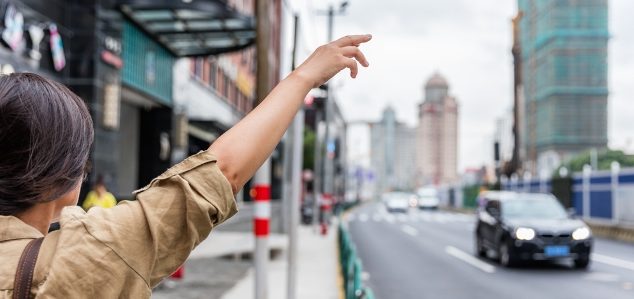Opinion
The regulatory landscape facing ride-share drivers
 A woman hails a ride-share driver. (Photo: Maridav, via Shutterstock)
A woman hails a ride-share driver. (Photo: Maridav, via Shutterstock) Technology has given us more freedom to choose the way we work, live, travel, and shop. But many Americans are hitting bureaucratic roadblocks on their way find full- and part-time work with peer-to-peer services like Lyft, Postmates, and Handy. These roadblocks are not just bad for workers, but also for consumers, commerce, and the tax revenue that comes with it.
Some of these roadblocks are intentionally created by incumbents trying to prevent competition. But others are just legacy rules and laws that impede the fast-moving trend of workers moving into more flexible, freelance forms of employment.
To drive in Los Angeles County alone, a driver may be required to hold as many 88 different business licenses, each with their own fees and requirements.
California can breakdown one of these barriers.
On May 3, the state Senate Governance and Finance Committee held a hearing on a SB 182 – a bill that provides a simple solution to two of the problems plaguing ride-sharing drivers.
Counties across California require drivers for ride-sharing services like Lyft and Uber to be licensed. On its face, this seems reasonable. However, since there is little reciprocity between counties, drivers must carry dozens of licenses to work.
To drive in Los Angeles County alone, a driver may be required to hold as many 88 different business licenses, each with their own fees and requirements. A ride from Orange County to LAX could require 10 business licenses. And in the Bay Area, drivers could find themselves accountable to as many as 77 licensing jurisdictions.
Most people would agree that kind of regulatory morass is unworkable for Californians trying to become a driver — particularly those who only drive occasionally. The result, fewer Californians avail themselves of these work opportunities.
That’s why SB 182 is so important. The bill streamlines California’s business licensing practices by allowing a single license to be used across multiple jurisdictions. It unifies the state for people looking to find work across California – instead of forcing workers to find work only in the county or locality where they can afford a new license.
In addition to streamlining and unifying the licensing process, SB 182 protects drivers’ privacy. Often addresses and phone number of licensed business are made public. While this may work for typical businesses, it means the exposure of home and personal phone numbers for ridesharing drivers. SB 182 recognizes these differential businesses and removes local requirements for publication of drivers’ personal information.
California is an economic leader for the country and the world. It has been a proving ground, demonstrating the benefits of the peer-to-peer economy for those of us looking for a new mode of work.
California should continue this progressive momentum. It should advance SB 182 to free drivers from unreasonable regulatory burdens, protect drivers’ privacy, and enable the development of more consumer-benefiting services.
—
Ed’s Note: As Policy Counsel for NetChoice, Carl Szabo analyzes tech-related legislative and regulatory initiatives relevant to online companies. NetChoice is a trade association of eCommerce businesses and online consumers all of whom share the goal of promoting convenience, choice, and commerce on the net.
Want to see more stories like this? Sign up for The Roundup, the free daily newsletter about California politics from the editors of Capitol Weekly. Stay up to date on the news you need to know.
Sign up below, then look for a confirmation email in your inbox.

[…] READ More at Capitol Weekly […]